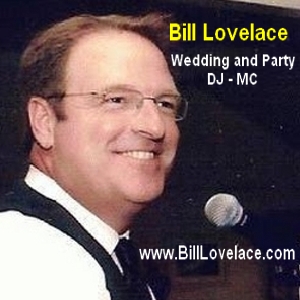 |  FULL SERVICE Quality Plumbing |
 |  FULL SERVICE Quality Plumbing |
| (Mar. 2, 2012, updated 2:08 p.m.) -- A CA Court of Appeal (three judge panel) in Santa Ana has held that CA cities can't flatly ban medical marijuana outlets as a nuisance unless the City can show that the outlet hasn't complied with state laws permitting collectives...and has included the requirement that items dispensed be grown on-site.
The latest Court of Appeal opinion dealt with the OC City of Lake Forest's attempt to shut down a collective in a nuisance abatement proceeding, based on that city's ban against medical marijuana outlets. A three-judge panel of the 4th district Court of Appeal held: We conclude local governments may not prohibit medical marijuana dispensaries altogether, with the caveat that the Legislature authorized dispensaries only at sites where medical marijuana is 'collectively or cooperatively . . . cultivate[d].' ([Health and Safety Code] § 11362.775.) Section 11362.775 exempts qualified medical marijuana patients and their primary caregivers not only from criminal prosecution for authorized collective or cooperative activities, but also from nuisance abatement proceedings. Thus, the Legislature has determined the activities it authorized at collective or cooperative cultivation sites, including a dispensary function, do not constitute a nuisance. Under the City's municipal code, in contrast, violation of its zoning ordinances constitutes a per se, categorical nuisance. Under the City's ban, a medical marijuana dispensary always constitutes a nuisance, though the Legislature has concluded otherwise. Because the City's ban directly contradicts state law, it is preempted and furnishes no valid basis for a preliminary injunction in the City's favor. Rather, the City must show Evergreen did not grow its marijuana on-site or otherwise failed to comply with applicable state medical marijuana law or permissible local regulations. Because the trial court granted the City's injunction request solely on the basis of the City's total ban, we must reverse the preliminary injunction and remand the matter for further proceedings. In reaching that conclusion, the Santa Ana-based panel stated: We recognize our conclusions today may disappoint the parties in this case and the opposing sides in California's ongoing debate concerning medical marijuana: dispensaries because they may wish to operate independently of cultivation sites, and some cities and other local governments because they want to ban dispensaries altogether. We emphasize that these are policy outcomes outside our power to reach or grant because we are constrained by the voters? and the Legislature?s enactments. Although courts will continue to resolve disputes over the meaning of the CUA and MMPA, policy choices about the role of medical marijuana in this state, including any changes or adjustments that may be made, rest ultimately with the people and their representatives. [March 2, 2:08 p.m. update] The Lake Forest Court of Appeal case was cited in a request for a Temporary Restraining Order (heard in a trial court earlier today, Mar. 2) made by a number of dispensaries -- not among those exempted from a recently enacted Long Beach Council ordinance that bans all but 18 dispensaries that previously qualified to operate under City Hall's previous (now Court-stricken) ordinance -- that sought to enjoin LB's enforcement of its ban on all but 18 City Hall specified outlets. Those requesting the TRO based their action in part on the recent Lake Forrest ruling. The LB City Attorney's office says the court denied the requested TRO and further refused to set an Order To Show Cause hearing, finding that Petitioners failed to show that they were likely to prevail on the merits [end update] On Feb. 14, 2012 (as carried LIVE on LBReport.com), the City Council voted 8-1 (Gabelich dissenting) to ban medical marijuana outlets BUT allow the continued operation (without City Hall regulatory control of their operations apart from actions applying to everyone, like nuisances, etc.) of eighteen marijuana dispensaries that complied with and met City Hall's standards under LB's now-court-invalidated approval process, allowing them to remain open for at least the next six months (which the Council can extend) until a CA Supreme Court ruling on the issue expected in roughly 12-14 months. The Council's action rejected the recommendation of City Attorney Bob Shannon to ban all medical marijuana operations in the interim period until the CA Supreme Court rules on the Pack v. Long Beach case (which invalidated LB's Council-approved ordinance, deeming the subject matter preempted by federal law, reasoning that a city can't regulate and affirmatively permit what Congress has declared an illegal substance). The verbiage of the Council adopted measure, with time periods left blank for Council decision at its meeting, was presented by Councilman Robert Garcia, who described it as a ban on bad operators (which he said the city should vigorously enforce) while allowing a "temporary exemption" from the ban for good operators. During Council discussion, it was revealed that the text was prepared by the City Attorney's office after discussions with Garcia, although its text wasn't made available for public review prior to Garcia presenting it at the Council meeting. The latest appellate court ruling creates further conflict among CA appellate courts as the CA Supreme Court prepares to hear an appeal in the coming months by the City of Long Beach of a ruling last fall by a different CA appeals court panel (in L.A.) that struck down LB's 2010 Council-enacted medical marijuana ordinance as beyond the city's power to affirmatively regulate what federal law bans. The Long Beach case [and a separate case from San Bernardino] may or may not produce a definitive, clarifying ruling on the statewide issue by the CA Supreme Court To read the Court of Appeal's full opinion in City of Lake Forest vs. Evergreen in its entirety, click here. In its opinion on "Other Medical Marijuana Case Law," the Court of Appeal in Evergreen doesn't mention the Court of Appeal in the Long Beach case...but includes this interesting text regarding location regulation in a footnote: [Footnote 12 text] ...Presumably those conditions [dispensary operations] would not require local officials to directly engage in any aspect of marijuana production, for example, by handling marijuana for on-site or off-site testing or any other purpose. Possession and other marijuana-related activities are still barred by federal law in most instances as a criminal offense, and requiring local government employees to engage in conduct prohibited by federal law would invite federal preemption of the ordinance based on an irreconcilable conflict. Such a conflict occurs where “„simultaneous compliance?” by the affected person “„with both [the local] law and federal directives is impossible.? [Citation.]” (Qualified Patients, supra, 187 Cal.App.4th at p. 758.) Local conditional use permits issued to dispensaries on other grounds, however, generally would not trigger federal preemption because issuing a permit does not constitute a local government command to operate a dispensary. (See ibid.) Simply put, a permit holder need not act on the permit. In other words, no one must do what a permit or permit condition exempts from state or local interdiction. The necessity of obtaining the permit functions, in effect, as an additional condition authorized by state law (§ 11362.83 [authorizing local regulations consistent with state law]) for exemption from state criminal law and from nuisance abatement. As we observed in Qualified Patients, at page 759, “The fact that some individuals orcollectives or cooperatives might choose to act in the absence of state criminal law in a way that violates federal law does not implicate the city in any such violation.”
Contact us: mail@LBReport.com |
     Alta Neuro-Imaging Neurofeedback (ocbiofeedback.com) provides testing for ADD/ADHD, neurofeedback treatment for adults and children with ADD/ADHD and information regarding ADD/ADHD and related conditions. Initial evaluation and assessment at no charge when you mention you heard about us from this ad, CLICK HERE.     Hardwood Floor Specialists Call (562) 422-2800 or (714) 836-7050  |
Contact us: mail@LBReport.com